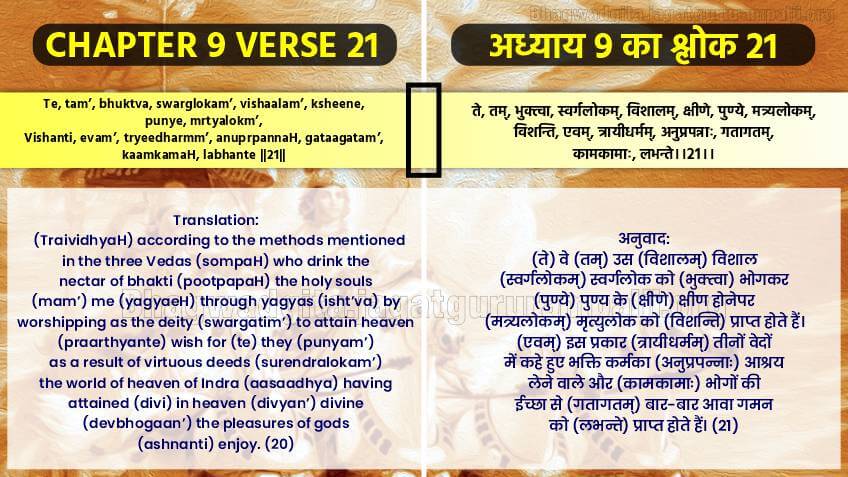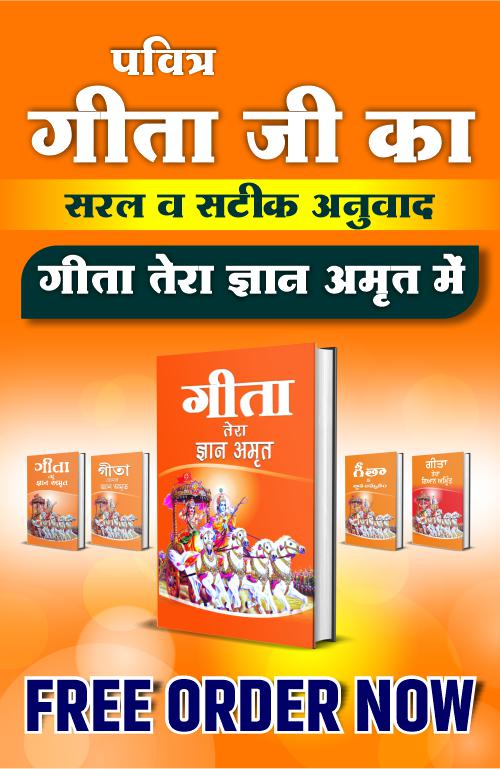
Te, tam’, bhuktva, swarglokam’, vishaalam’, ksheene, punye, mrtyalokm’,
Vishanti, evam’, tryeedharmm’, anuprpannaH, gataagatam’, kaamkamaH, labhante ||21||
Translation: (Te) they (tam’) that (vishaalam’) extensive (swarglokam’) heavenly world (bhuktva) having enjoyed (punye) virtuous deeds (ksheene) upon exhaustion of (mrtyalokam’) mortal world (vishanti) enter (evam’) thus (tryeedharmm’) the act of bhakti mentioned in the three Vedas (anuprpannaH) who adhere to (kaamkamaH) with the desire of worldly enjoyments (gataagatam’) repeated birth and death / coming and going (labhante) achieve. (21)
Translation
Having enjoyed that extensive heavenly world, upon exhaustion of the virtuous deeds, they again enter the mortal world. Thus, those who adhere to the act of bhakti mentioned in the three Vedas, with the desire of worldy enjoyments achieve repeated birth and death.
ते, तम्, भुक्त्वा, स्वर्गलोकम्, विशालम्, क्षीणे, पुण्ये, मत्र्यलोकम्,
विशन्ति, एवम्, त्रायीधर्मम्, अनुप्रपन्नाः, गतागतम्, कामकामाः, लभन्ते।।21।।
अनुवाद: (ते) वे (तम्) उस (विशालम्) विशाल (स्वर्गलोकम्) स्वर्गलोकको (भुक्त्वा) भोगकर (पुण्ये) पुण्य के (क्षीणे) क्षीण होनेपर (मत्र्यलोकम्) मृत्युलोक को (विशन्ति) प्राप्त होते हैं। (एवम्) इस प्रकार (त्रायीधर्मम्) तीनों वेदोंमें कहे हुए भक्ति कर्मका (अनुप्रपन्नाः) आश्रय लेनेवाले और (कामकामाः) भोगोंकी ईच्छा से (गतागतम्) बार-बार आवागमनको (लभन्ते) प्राप्त होते हैं। (21)
